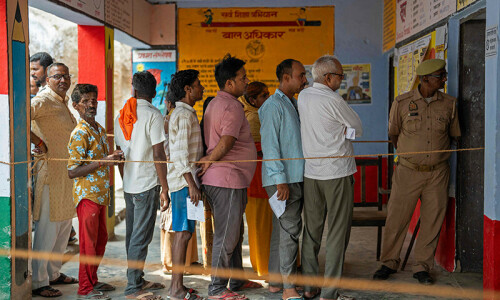IT is incredibly heart-rending to see growing tensions and clashes among various tribes in rural Sindh. The most recent one is the Mangneja-Kalhora clash in Shikarpur which claimed six lives, including a chieftain of the Mangneja group and a minor girl from the Kalhora tribe. Several precious lives have been lost in such clashes which do erupt on petty matters, ranging from an exchange of hot words between two people from different tribes to theft of livestock.
The clashes on trivial issues then involve the two tribes, claiming several lives and property. Once there is a clash, no member of the warring clan can move freely to look after his crops because of the fear of getting killed by the opponent tribesmen. It results in financial problems for members of fighting tribes who, as a consequence, become hardened criminals to feed hungry bellies of their families. In some cases, members of warring tribes have become notorious dacoits, maintaining strong links with the world of crime. It is the children of the quarrelling clans who suffer the most. They are not allowed to attend their schools and thus grow up as uneducated adults. In the upper part of Sindh, Kashmore has seen the highest number of bloody clashes. This is evident from the fact that the district has the lowest literacy rate in the province, according to a report released by the education department in 2008.
The formula of inverse proportionality seems to be working here: the more will be the clashes, the less will be the number of educated people. Although it is not difficult for chieftains to stop these bloody clashes, they are least bothered about doing so. These disputes, on the other hand, keep people dependent on their sardars.
It helps these sardars to keep their vote bank intact. Some of these self-proclaimed chiefs even do not let their own people sit on sofas or chairs in their guestrooms known as ‘autaq’. They are rather compelled to sit on the floor in front of their sardars who sit on elevated, cosy seats. This feudal mindset is the biggest obstacle to education and literacy rate in rural Sindh. The situation must change for the better.
SAHITO ZAHEER Sukkur











































Dear visitor, the comments section is undergoing an overhaul and will return soon.